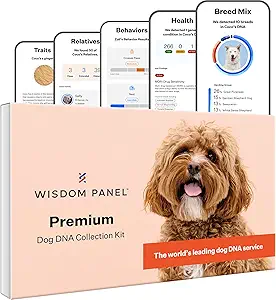Selecting the Best German Shepherd Puppy: A Complete Guide
This post may contain affiliate links, which means I’ll receive a commission if you purchase through my link, at NO EXTRA COST TO YOU
Bringing a German Shepherd puppy into your life can be a rewarding experience. However, finding the right one requires thoughtful consideration. German Shepherds are known for their intelligence, loyalty, and versatility, making them ideal companions and working dogs. But not every puppy suits every owner’s lifestyle. Therefore, understanding what to look for becomes essential when choosing the perfect match. In this guide, we’ll walk through every step of the selection process, from researching breeders to evaluating health and temperament.

1. Working Line or Show Line: Which One Fits Your Lifestyle?
German Shepherds come in two primary lines: working and show. Working lines are bred for tasks like protection, search-and-rescue, and police work. Therefore, they are highly energetic and thrive on mental and physical stimulation. In contrast, show lines focus more on looks and temperament. They are calmer, making them better suited for family life.
Moreover, each type comes with specific care needs. Working lines often require intensive training to keep them engaged, while show lines need consistent socialization to prevent boredom. Therefore, choosing the right line depends heavily on your lifestyle and activity level. If you want a dog to accompany you on long hikes, a working line may fit best. However, a show-line German Shepherd might be ideal for quieter households.
2. Assessing Your Lifestyle and Long-Term Commitment
Bringing home a German Shepherd puppy means dedicating time and effort. This breed craves companionship, exercise, and mental challenges. Moreover, they thrive when given clear boundaries through training. Therefore, ask yourself if you can commit to regular walks, playtime, and obedience sessions.
German Shepherds can develop behavioral problems when left alone for long hours. Additionally, grooming and vet visits take time and resources. Therefore, ensure that your schedule can accommodate these demands. If your lifestyle feels too busy for a high-energy dog, you might want to explore adopting an adult German Shepherd instead.
3. Finding Reputable Breeders and Adoption Centers
Not all breeders follow ethical practices, so you must research thoroughly. A responsible breeder ensures their dogs are healthy, well-socialized, and free of genetic conditions. Moreover, they allow potential buyers to visit their facilities, meet the puppy’s parents, and ask questions.
However, adoption is another excellent option to consider. Many rescue organizations have German Shepherds looking for loving homes. Therefore, check local shelters if you prefer adopting. Additionally, adoption offers the chance to provide a second chance to a dog in need. Whether you choose to buy or adopt, focus on finding a source that prioritizes the dogs’ well-being.
4. Observing Puppy Behavior and Temperament
When visiting a litter, watch how each puppy interacts with its siblings. Some puppies may act dominant, while others stay shy and reserved. Moreover, a balanced puppy often exhibits curiosity without being overly aggressive or fearful. Therefore, pay attention to how the puppy responds to new people and noises.
Additionally, your expectations should align with the puppy’s behavior. A confident puppy may become an assertive adult dog, requiring firm training. However, a timid one might need extra socialization. Therefore, understanding each puppy’s personality helps you select a dog that fits well within your household.
5. Prioritizing Health Checks and Vaccination Records
Health plays a vital role in choosing the right puppy. A healthy puppy will have bright, alert eyes, a shiny coat, and a playful demeanor. Moreover, reputable breeders provide detailed health records, including vaccination and deworming histories. Therefore, make sure to review these documents carefully.
Additionally, German Shepherds are prone to conditions like hip dysplasia. Therefore, ask if the breeder conducts genetic testing on the parents. Ensuring the puppy comes from healthy lineage reduces the risk of hereditary issues later on.
6. Matching Temperament with Your Household Needs
Every family has unique expectations for their pet. Some may prefer a calm, laid-back companion, while others seek a high-energy playmate. Therefore, you must clarify your needs with the breeder or rescue center.
Moreover, if you have children or other pets, the puppy’s temperament becomes even more critical. A puppy that interacts well with others during the early stages will likely become a sociable adult. Therefore, choose a puppy with a personality that complements your family’s lifestyle.
7. Ensuring Early Socialization Opportunities
Socialization helps German Shepherd puppies develop into confident and well-behaved adults. Therefore, it is essential to expose them to various sounds, people, and environments early on. Puppies raised in isolated settings often struggle with anxiety and fear later.
Moreover, many breeders start socialization before the puppies go to new homes. Ask if the breeder introduces the puppies to household noises, outdoor walks, and different people. Early exposure ensures a smooth transition into your home.
8. Asking About Health Guarantees and Genetic Testing
A responsible breeder provides health guarantees to ensure transparency. Moreover, some breeders offer to take back the puppy if unforeseen health problems arise. Therefore, you should ask for details about any return policy.
German Shepherds are vulnerable to certain genetic disorders. Therefore, it’s wise to ask the breeder if they test the parents for hip dysplasia or other common issues. A breeder who prioritizes health helps you avoid unexpected problems in the future.
9. Meeting the Puppy’s Parents for Insight
Meeting the puppy’s parents offers valuable insights into what you can expect. Moreover, observing the parents helps predict the puppy’s size, behavior, and energy level. Therefore, if the parents have friendly and stable temperaments, the puppy is more likely to inherit those traits.
However, if the parents display anxiety or aggression, it could be a warning sign. Therefore, take your time to evaluate both parents before making a final decision.
10. Trusting Your Instincts and Taking Your Time
Choosing the right puppy requires patience. Therefore, don’t rush into a decision. Take your time to evaluate each puppy and trust your instincts. If a situation feels off, explore other breeders or adoption centers.
Moreover, the right puppy will become a part of your life for years to come. Therefore, making an informed decision ensures a lasting bond and fewer challenges down the road.
Final Thoughts
Selecting the best German Shepherd puppy involves careful planning and thoughtful decisions. However, the journey becomes rewarding when you bring home a loyal and loving companion. Therefore, consider all the factors mentioned in this guide to make the best choice. Moreover, enjoy every moment as you welcome your new furry friend into your home.






